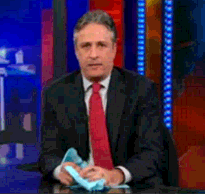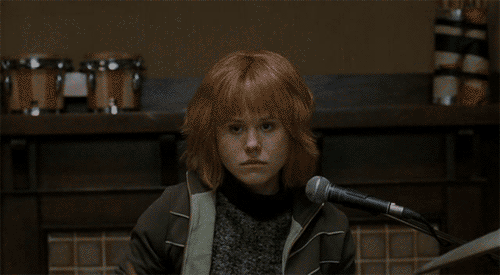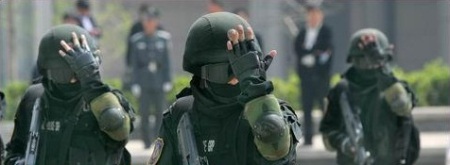 Divergent by Veronica Roth
Divergent by Veronica RothMy rating: 1 of 5 stars
Okay, time to get serious. I wish I could be funny like my Mortal Instrument reviews, but my intellectual has kicked in because this book manages to be defined as part of a genre that I have always adored, especially in short stories.
Before I begin, my usual disclaimer that this review will contain logic, griping, complaining, spoilers, and the general deconstruction of everything that the fans hold dear. If you wish to berate me for this, don't waste your time. Nothing you say will convince me. This book is just that bad.
So, my initial reaction was thus:

Dramatic, I know. But not as dramatic as wanting to take a shot gun or lighter to a library book. I'm at least glad I didn't pay for it.
To get into the mood, some foreplay.
Beatrice - the main character - lives in a Chicago where everyone is divided up into six groups. The Abnegation (selfless people), Dauntless (brave people), Erudite (intelligent people), Amity (friendly people), Condor (honest people), and the Factionless. When a child reaches sixteen, they must take a test that will tell them what faction they belong into, but then they still get to pick the faction. Now, each faction has a specific lot in life.
Let's break it down, shall we?
Abnegation: (Noun) The act of instance of abnegating, or denying oneself some rights, conveniences, etc. This is Beatrice's faction. They are supposed to be entirely selfless. They wear all gray, eat insipid food, and everything is considered self-indulgent to them. You could say they are beyond Amish. Oh, and every member of the government is Abnegation. Every member. Yeah. They're referred to as "selfless leaders in government" at one point, but when is it ever smart to have one faction in control? Here is the kicker, they aren't the bad guys. They actually don't do anything wrong that an oppressive regime would do, like make the rest of the factions give up "indulgences" or go to mass every day. They are doormats.
Dauntless: (Adjective) Not to be intimidated; fearless; intrepid; bold. This is the faction Beatrice joins. They are defined as "protection from threats both within and without." They are the security forces of Roth Chicago. The truth is that the Dauntless are reckless idiots. Their transportation is a train that never stops, so they must jump from it. They dye their hair, get piercings and tattoos, and wear tight clothes. They are more like rebellious high schoolers than a militant force. I'll write more about them later since the reader spends the most time with this faction. I'll at least add that they are proof of Roth's lazy writing.
Erudite: (Adjective) Characterized by great knowledge; learned or scholarly. The faction Beatrice's brother, Caleb, joins. The book defines them as "intelligent teachers and researchers." If a society could have and R&D department, this would be it. I'm sad to say that smart people are not depicted well in this story. They are shown to be smug, mean, and power hungry. There are no scientists who understand that scientific break-throughs are a double edged blade; one side will do good and another evil. This faction is the bad guy because they believe the Abnegation are holding back prosperity and progress. That would make sense if their way of going about it wasn't so stupid. Slander and brainwashing never works in the end.
Amity: (Noun) (1) Friendship; peaceful harmony. (2) Mutual understanding and a peaceful relationship, especially between nations; peace, accord. Book defines as "understanding counselors and caretakers." They do the farming and smile a lot. That's the extent of it.
Candor: (Noun) (1) The state or quality of being frank, open, and sincere in speech or expression; candidness. (2) Freedom from bias; fairness; impartiality. Most of Beatrice's fellow Dauntless initiates are from Candor. The book defines them as "trustworthy and sound leaders in law." Yes. They are all lawyers that we know of. They're supposed to be honest people, but they're honest to the point of being rude and come across as being quite judgmental. They also dress like Mormon missionaries because they believe the truth is black and white. How has a faction full of completely honest people not killed each other already? It would be like living with a bunch of Sherlocks in a John Grisham novel.
The Factionless: Those that did not pass the initiation for their chosen factions or dropped out. They are essentially homeless day laborers who are paid in food and clothes. They live in old subway tunnels. No body loves them or wants to be them. The only thing people fear more than being factionless is the prospect of war. No executions or murders or anything like that. Just being factionless and an abstract idea of war. I have a headache now.
Okay, now that we have the basics, what is the economy like? Oh, Roth doesn't tell us. Then what world shattering event led to the formation of the factions? It says they were formed by different people who believed those were the most important traits, but not why? No bad weather. No nuclear war. No civil war. No raising tides. Nothing. Nada. Then why is Lake Michigan an effing marsh? Not only that, but do you know how many cities there are on the edges of Lake Michigan? How are they not fighting Chicago over water if it's scarce?

Okay. Okay. Maybe I'm over-thinking her TOTAL LACK OF WORLD BUILDING. I mean, I've seen more world building in short stories, and the short story format isn't even set up for world building. Despite the little bit of information on the factions, the reader knows almost nothing about this society Roth has set up. None of it makes a lick of sense. If I sat down and mapped out how the different functions interacted and what held them together, there would be squat. It's more entirely dysfunctional than a dystopia. And what makes a dystopia exactly?
I believe this paragraph from John Joseph Adam's Introduction from his anthology of dystopian short stories, Brave New Worlds, sums it up the best:
The roots of the word dystopia, dys- and -topia, are from the Ancient Greek for "bad" and "place," and so we use the term to describe and unfavorable society in which we live. "Dystopia" is not a synonym of "post-apocalyptic"; it also is not a synonym for a bleak, or darkly imagined future. In a dystopian feature, society itself is typically the antagonist; it is society that is actively working against the protagonist's aims and desires. This oppression frequently is enacted by a totalitarian of authoritarian government, resulting in the loss of civil liberties and untenable living conditions, caused by any number of circumstances, such as world overpopulation, law's controlling a person's sexual or reproductive freedom, and living under constant surveillance.
Now, I would love to put almost the entirety of Adam's tiny essay here, but there isn't enough room for it with this stinking word count limit. My point is, Divergence isn't a dystopia.
"But what about Tris being a Divergent, and not being able to see her brother, and being torn from her family? How is that not a dystopia? It's bad!"
Not necessarily. You see, because the Abnegation run the government, technically they can control the other factions, but they don't. They're inept. They actually have no way to enforce the rules that everyone follows. They have no security force of their own, or punishments. This society could not exist because it could not function.
"But the Erudite were in charge! And the brainwashing!"
The Erudite weren't in charge at first, and even then, not everyone would have been behind it. Also, the Abnegation's viewpoint on the world doesn't give them the back bone to push against at least three factions of obnoxious individuals. They should have toppled from power generations ago, but since Roth never gives us an idea about how long her Chicago has been around, the reader doesn't know. This society is not plausible. At. All.
Watch. Get five friends together and each have them represent a faction. Then have Selfless tell Intelligence, Honesty, and Muscle what to do. Think about it. Even the US Armed Forces push back against Congress.
"But she explains all your gripes in Insurgent."
Then let me talk about Tris, the main character.

She is the daughter of an Abnegation government official. She is small for her size and built like a boy. She wishes she was more selfless like her family, but instead lies and wishes vengeance on just about everyone that hurts her. She is a giant hypocrite.
Take her fight with Molly after she's "pantsed" in the dorm. Tris keep's kicking her while she's down out of vengeance. That is just petty and mean. If she keeps wishing she's selfless, that would be a moment where she could demonstrate it. And Al after he apologizes for trying to hurt her, she doesn't forgive him. Tris is a horrible, horrible person. She isn't Divergent. She's Dauntless through and through. She is not selfless, honest, smart, or friendly. She's suspicious, spiteful, and dense.
If she was the least bit pretty, I'd get why Four was into her. But she isn't, so I don't.
And that brings me straight to our hunky hero who is oh, so dreamy. He's a virgin, hot, wounded, and mysterious. He only has four fears. That is why he has a nickname reserved for science experiments. Isn't he the best!

Four has about as much life as a Ken doll. Probably the genitals of one too. His real importance is that he's also a Divergent.
Now I will talk about Divergents and the nuances of Dauntless now that I've brought up Tris and bitched about how this is not a dystopia.
I've already said that Dauntless were crazy people that do stupid stuff to seem brave. Roth tries to make the initiates go through a difficult training regimen, but they only beat on each other. There is no learning of throws, holds, or grabs. No learning of efficient ways to take down enemies without killing them or brutally beating them. Roth doesn't even know that most fights are won in the grapple. It's like she did no research about how to train security based forces what so ever.
It's even more apparent when she brings in guns. Yes, guns. To Roth, they are never rifles or pistols. They are never semi-auto or bolt action. She doesn't even know what a magazine is. Need an example?
"She pushes the bullet chamber open and peers inside. Seeing how many bullets she has left. Then takes a few out of her pocket and reloads."

Unless the gun is a revolver, which is unspecified, the magazine would have to be removed to see how much ammo is left and to reload it. And if I'm running around with a semi-auto pistol, I would try to carry loaded magazines with me instead of individual bullets if possible. Seriously, just the technical knowledge alone was torture to get through. I don't need to know how to field strip a P-90, but at least the basics is needed when you are writing about a militant faction.
And the Divergent thing. Basically, they can't be brainwashed. Roth tries to justify it wish an explanation given by Tris' mom:
"But our minds move in a dozen different directions. We can't be confined to one way of thinking, and that terrifies our leaders. It means we can't be controlled. And it means that no matter what they do, we will always cause trouble for them."
Do you see the problem with that one? Do you?
First off, they are Abnegation. THEY ARE THE LEADERS.
Second, I don't think Roth has ever read 1984, Brave New World, or Fahrenheit 451 where a bulk of the population's way of thinking was quite successfully controlled through fear or bliss. Sure, there were a few outliers, but in two of the three, they were dealt with through discreet means. And the sad thing, all three of those futures have come true in some sense or another. We will never come anywhere close to the world depicted in Divergence.
So, to sum it all up because I don't have enough words to keep going into the massive problems this book has, don't bother. Read The Hunger Games if you haven't yet (even though I thought Collins kind of dropped the ball in Mockingjay). Or you could pick up the anthology I mentioned earlier since it has awesome dystopia shorts written by women like Shirley Jackson, Usula K. Le Guin, and Carrie Vaughn. Or read anything else really.
And if anyone wants me to do Insurgent, I would have to get 100 likes on this review. Even if I do, I can't guarantee this wouldn't happen after I read it.

So it's been fun. I'm going to go bleach my brain now.
Edit 8/16/2013: There is this thing I've been thinking of for some time now. The Dauntless are always trying to have these kids get rid of fears. There is this saying that I think people should keep in mind, "Those without fear is missing a good friend."
If you don't quite understand it, it means that those who are fearless don't have an important survival mechanism. Fear is what stimulates the "fight or flight" response that sends adrenaline coursing through our veins. Bravery is controlling your fear, utilizing it, not getting rid of it. It really bothered me that this book interpreted bravery as the absence of fear. Bravery, courage, is taking a step forward and facing the thing that makes you want to piss yourself and dive for cover.
But fear should also be listened to. If someone says you have to jump off a building to prove yourself, and you know you could die, true bravery would be to look them in the eye and tell them it's stupid and pointless. It's to stand up for yourself.
Take the fact that Four turns down the position that Shower Curtain (Eric) takes over. That was cowardly. It would have been braver for him to take the position so he could protect the students from the corruption. He could also try to dismantle the corrupt from the inside out. Yeah, it's more dangerous, but if this book is supposed to be about utilizing your fear for change, then that would have been a perfect little parallel sub-plot. It's a shame Roth isn't a more talented writer.
No comments:
Post a Comment